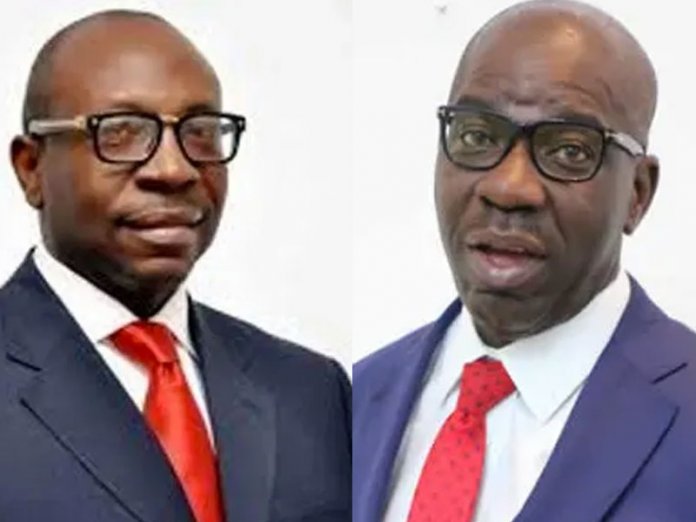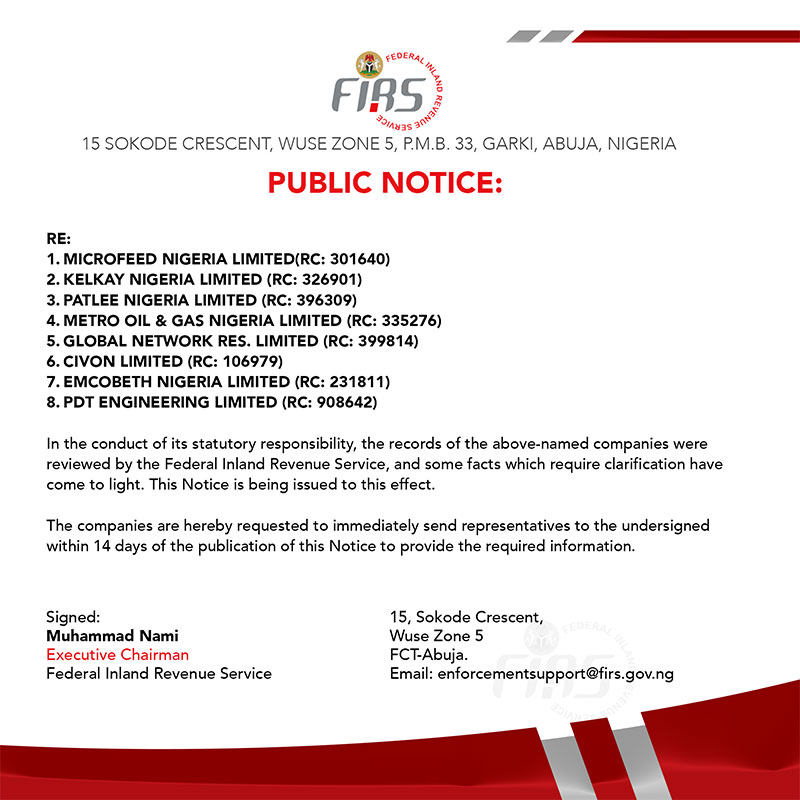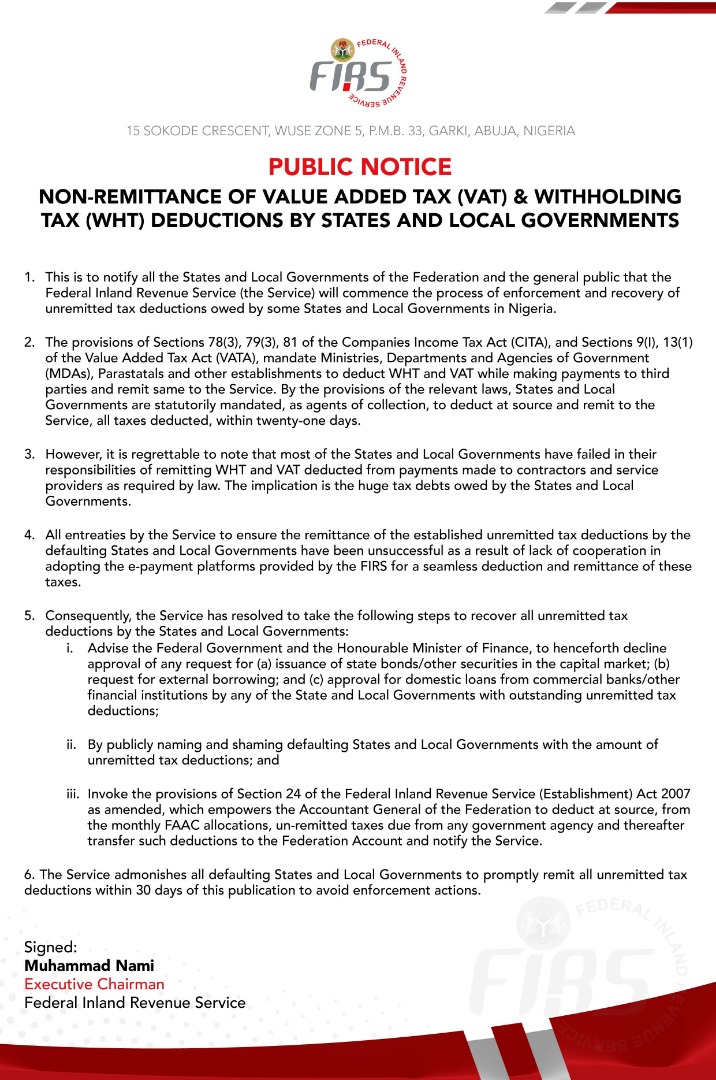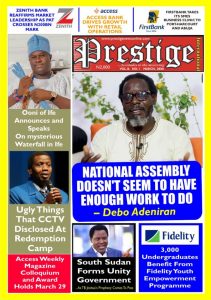It is crunch time for Godwin Obaseki, the 63-year-old governor of Edo State.
His fate hangs in the hands of voters who will decide in the next few hours if he deserves to win a second term in an election that promises to be tough and intriguing.
There is apprehension in Mr Obaseki’s camp. Same with that of his main rival, Osagie Ize-Iyamu of the All Progressives Congress (APC).
If he wins this election, Mr Obaseki, who is running on the platform of the Peoples Democratic Party (PDP), would have succeeded in ‘taming’ his predecessor, a former national chairman of APC, Adams Oshiomhole, the man who brought him into government and also helped him to win the governorship in 2016.
Mr Ize-Iyamu, 58, is Mr Obaseki’s main challenger, no doubt.
But the man that stands strongly on the governor’s political path is Mr Oshiomhole whose removal from office in June as the APC national chairman was largely caused by his prolonged political fight with the governor.
Mr Oshiomhole, obviously, is hoping to use the election to get his pound of flesh and reclaim his glory in politics.
Odds against Obaseki
On Thursday, two days to Election Day, we asked our Benin correspondent, Mudiaga Affe, what the opinion in the street was like, regarding the Edo governorship election.
“The ordinary people are rooting for Obaseki,” Mr Affe said. “But the elite, those who have money in the state, are rooting for Ize-Iyamu.”
Mr Obaseki’s administration is said to have done well in building roads and other infrastructure in Edo and thereby endearing himself to the ordinary people in the state, but on the other hand he is said to have alienated the elite and the politicians “by shutting his door against them”.
At some point in his administration, when his relationship with Mr Oshiomhole was still intact, Mr Obaseki reportedly said that politicians in Lagos don’t go to Alausa (the seat of Lagos government), they go to Bourdillon (where Bola Tinubu, the APC national leader, lives).
“He (Obaseki) said politicians should go to Iyamho (where Oshiomhole lives in Edo), and not come to him, and that he wanted to work,” PREMIUM TIMES correspondent, Mr Affe, quoted one politician to have said in Benin.
Aside from his parting ways with Mr Oshiomhole, Governor Obaseki appears to have had a challenge in managing his relationship with the people around him. And that, definitely, is going to count against him in the election.
Take, for instance, the yet-to-be sworn in members of the Edo State House of Assembly.
The fact that only about seven state lawmakers, out of the 24, are reportedly on Mr Obaseki’s side speaks volumes about the governor’s inability to manage the Edo assembly crisis.
“Have you ever seen a place where a governor would support the declaration of the seats of his party members vacant, with just a few months to the primary and (general) election? Do you think these are right signals for a man who wants to contest election, not to talk of winning?” Washington Osifo, one of the yet-to-be sworn-in lawmakers, told PREMIUM TIMES, January.
“Assuming it is only the 14 of us (lawmakers-elect) that he is having problem with, but at least I have my family, I have my friends, I have my well-wishers, I have my immediate community where I come from. If you put all these things together in 14 of us, there is no way we will not affect at least 10,000 votes. These are multiplier effects.”
Mr Osifo said the governor was fighting too many battles.
“Do you fight when you are going into election or do you make peace when you are going into elections? When you are going into election, even your enemies, you will go and beg and make peace because even from a madman one vote count.
“Politics is a game of number,” Mr Osifo said.
The administration was said to have issued a circular, allegedly advising some traditional leaders to refrain from visiting the Government House “so as to allow government officials to do their job”.
The resignation of Mr Obaseki’s chief of staff, Taiwo Akerele, commissioners and several political appointees in the administration would likely result in a gang up, together with their supporters, against the governor’s reelection.
Mr Obaseki’s spokesperson, Crusoe Osagie, said the number of aides who have resigned is “so insignificant” and would not have any negative impact on the governor’s reelection.
But in Nigerian politics, where vote-buying remains a big issue, powerful politicians and the elite have a way of getting the ordinary people to abandon their convictions. So, Governor Obaseki must devise a means to deal with this if he hopes to win.
Mr Obaseki was a technocrat before he was brought into the Edo government for the first time by his predecessor, Mr Oshiomhole, to head the Edo State Economic and Strategy Team in 2009.
Because of the distraction caused by his fight with Mr Oshiomhole, it is believed that he did not have the time to build for himself a political network.
He is therefore going into a crucial election without a strong political base – save for his running mate, Philip Shaibu, who is believed to have enormous political clout.
In terms of reaching out to voters, Mr Obaseki may find it difficult to outpace the APC candidate, Mr Ize-Iyamu, who is an experienced politician with a great network and skill in mobilising people.
‘Power of incumbency’
Being the incumbent governor is an advantage for Mr Obaseki. In Nigeria, it takes a lot of political maneuvering to defeat an incumbent in an election he is taking part in. But the snag here is that APC, the party which wants to unseat Mr Obaseki, is in control of the government at the centre, the federal.
The PDP already had a firm political structure in Edo State even before Mr Obaseki picked the party’s governorship ticket after defecting from APC. That is another advantage for the governor.
In the 2016 governorship election, PDP scored 253,173 votes, out of the 613,244 votes cast in the election, while APC won with 66,310 votes.
Interestingly, the current APC candidate, Mr Ize-Iyamu, was the PDP candidate in the 2016 election, while Mr Obaseki was the APC candidate.
Although the PDP won in only five local government areas (Esan North-East, Esan South-East, Orhionmwon, Esan West, and Esan Central), Mr Obaseki and the APC pulled in a good number of votes from other areas, enough to secure the party a victory.
‘Power shift’
The politics of power shift in Edo could play out in favour of Mr Obaseki in the election.
The immediate past governor of Edo, Mr Oshiomhole is from Edo North Senatorial District, while Governor Obaseki is from Edo South – the same with Mr Ize-Iyamu.
Edo Central is expected to produce the next governor by 2024.
If Mr Ize-Iyamu beats Mr Obaseki in this election, such expectation could be disrupted because he (Ize-Iyamu) would naturally want to do two terms as governor.
For this reason, Edo Central is likely going to throw their weight behind Governor Obaseki – the district is already a PDP stronghold, even though it has the least number of votes, compared with Edo South and Edo North.
Mr Obaseki will, however, have to contend with Mr Ize-Iyamu for the votes in the Edo South, since both of them are from the district.
From a previous report by PREMIUM TIMES, Mr Obaseki’s running mate, Mr Shaibu, who is from Edo North, will seek to overcome Mr Oshiomhole and Mr Ize-Iyamu’s running mate, Gani Audu, in the district in order to secure winning votes for PDP.
Although there are several other political parties in it, the Edo governorship election is obviously a two-horse race between PDP and APC.
Why Edo people should reelect me – Obaseki
Meamwhile, at a debate organised by Channels TV recently, Mr Obaseki said he has done well for the people in his first term and, therefore, deserves a second term.
“The last four years of my stewardship has witness remarkable changes and improvement in infrastructure, we have revamped and reformed our educational system.
“We have introduced a new mantra of governance, a new way of doing things, of spending Edo funds on development and not on a clique,” the governor said.
“I will be a square peg in a square hole” – Ize-Iyamu
But the APC candidate, Mr Ize-Iyamu, who is pastor, at the debate, said he has occupied key public office in the past in Edo and, therefore, he has “deep insight into the workings of government.”
“I have articulated an agenda which I believe is a doable roadmap to bring Edo state on the path of prosperity. I will be a square peg in a square hole,” he said.
Source: Premium Times






























